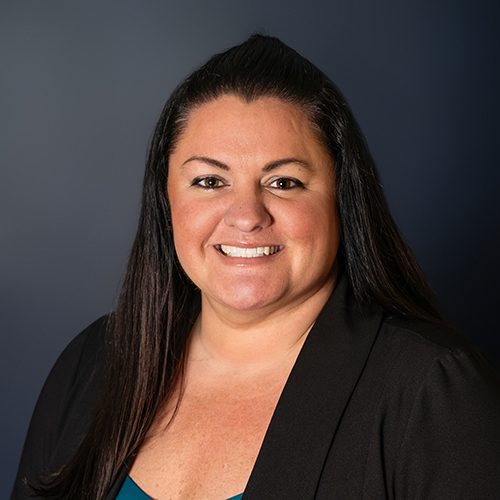 The teenage years pose challenges for most adolescents, but for those battling mental health conditions, these years can be overwhelming and seemingly unbearable. One key factor contributing to their struggle is the sense of voicelessness they experience. They often feel sidelined, as though their thoughts and emotions hold no significance.
The teenage years pose challenges for most adolescents, but for those battling mental health conditions, these years can be overwhelming and seemingly unbearable. One key factor contributing to their struggle is the sense of voicelessness they experience. They often feel sidelined, as though their thoughts and emotions hold no significance.
Creating a safe and judgment-free space for teenagers to express themselves becomes crucial. Art and music therapy can be invaluable for those who struggle to communicate through conventional methods. Through art therapy, adolescents may find a means of self-expression that surpasses the limitations of traditional talk therapy.
Massachusetts Center for Adolescent Wellness (MCAW) offers art and music therapy to our teen patients through our partial hospitalization program (PHP) and intensive outpatient program (IOP). To learn more about our adolescent therapy programs at Massachusetts Center for Adolescent Wellness, contact us at 855.940.6229.
What Is an Art and Music Therapy Program?
Art and music therapy are two therapy modalities that encourage participants to express themselves creatively using art and music. Participants can learn to express themselves through music, movement, and visual arts. Art therapy allows participants to express their thoughts, feelings, and emotions without saying a word. They can use different art mediums like drawing, painting, watercolors, or clay modeling. At MCAW, we offer our art and music therapy modalities through our PHP and IOP.
Why Is an Art Therapy Program Important in a PHP or IOP?
Many teenagers facing mental health challenges have endured traumatic experiences in their young lives. Discussing this trauma can be arduous and painful, especially with a therapist they barely know. They may not fully grasp the extent of what they have been through and how it has affected their mental well-being. Using tools like paintbrushes or pencils to express themselves, adolescents can navigate their emotions without uttering a word. This creative outlet not only aids in personal exploration but also allows therapists to gain deeper insight into the inner struggles of these young individuals.
Additionally, music therapy can assist adolescents in recognizing the challenges and circumstances that contribute to their distress, ultimately affecting their well-being and causing anxiety, stress, or depression. While similar to art therapy, music therapy employs music as a means of self-expression and exploration instead of art. During music therapy sessions, participants have the opportunity to listen to uplifting music, which can provide a boost of dopamine.
What to Expect During Art and Music Therapy with an IOP or PHP
Art and music therapy have many benefits for adolescents dealing with mental health conditions like anxiety, depression, substance abuse, trauma, behavioral issues, and thought disorders. These approaches provide a nurturing environment that encourages healing, self-expression, and personal growth. Through artistic and musical expression, young individuals can find solace, explore emotions, and develop coping mechanisms, leading to improved well-being and mental wellness.
Some of the benefits of art and music therapy include:
- Creative self-expression – Art therapy allows adolescents to express themselves creatively, offering an alternative to conforming to societal norms. Through music and visual art, teens can effectively express emotions and have more control over self-expression, enabling them to face challenges head-on.
- Improved self-confidence – Engaging in art and music creation helps teens feel more confident about themselves and their abilities. Accomplishments in art, music composition, or learning an instrument foster a sense of achievement, positively impacting other areas of their lives and their ability to handle new situations.
- Better focus – Adolescents become focused on their art and music as they creatively work through their emotions. This concentration serves as a crucial aspect of therapy, helping therapists and caregivers identify hidden ways to support them.
- Increased motivation – Research indicates that many teens lack motivation to attend traditional therapy sessions, often perceiving them as intended only for severe mental disorders. However, art and music therapy can motivate them to participate due to the enjoyable nature of the activities. This increased motivation leads to better treatment outcomes as they are more likely to engage in therapy.
- Safe space for emotional processing – Adolescents create a safe space through guided art and music therapy, facilitating emotional processing. This safe space allows them to comfortably express themselves and explore the situations and circumstances that led them to therapy.
Art and music therapy programs through PHP and IOP at Massachusetts Center for Adolescent Wellness offer a nurturing environment, enabling teens to chart their own therapeutic journey through creative self-expression and emotional exploration.
Enroll in PHP and IOP with Massachusetts Center for Adolescent Wellness
The Massachusetts Center for Adolescent Wellness offers day treatment and intensive outpatient programs (IOP) for adolescents ages 13 through 17. We specifically support teens who are struggling with mental health conditions.
The art and music therapy program is offered at the outpatient center during the day. It can help adolescents work through their challenges in a safe space while expressing themselves creatively. Contact us at 855.940.6229 or through our online form to learn more about the art and music therapeutic modality and how it can help your teen.

Clinically Reviewed by:
Clinical Director Kara DeBlois
Kara C. DeBlois, LICSW has been practicing on the South Shore of Masschusetts for over 15 years. She received both her Bachelors of Psychology and Masters of Social Work Degrees from Boston College. Her professional experience includes working as a clinician in an Adolescent Partial Program early in her career.

